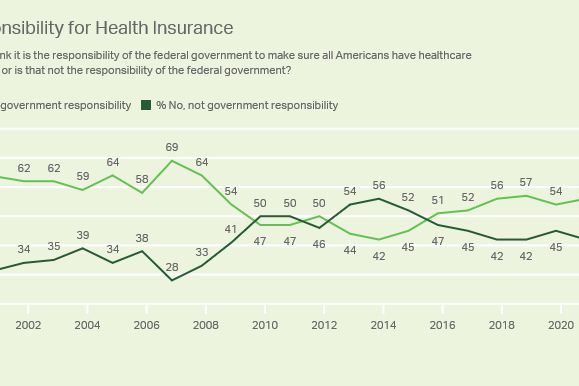
Joe Biden isn’t going to have an “FDR-size presidency.”
Or, at least, the odds that Biden will fundamentally transform the role of the state in the U.S. economy, more than double America’s union membership rate, lead the U.S. to victory in a world war, reinforce residential segregation, put tens of thousands of U.S. citizens into internment camps on the basis of their ethnicity, or enact similarly epochal changes to American life over the course of 12 years in office are very low. And his prospects for equaling LBJ’s feats of welfare-state expansion, civil-rights promotion, and crimes against humanity are similarly dim.
But size isn’t everything. And Scranton Joe has a real shot at assembling the most progressive domestic legacy of any president who didn’t put Americans in concentration camps or incinerate foreign civilians by the hundreds of thousands.
Which is kind of remarkable. As I noted last week, once it became clear that Democrats would have only a bare majority in the U.S. Senate — and thus that a moderate from a deep-red state would have veto power over the party’s agenda — most observers assumed Biden would need to shelve his campaign platform in favor of bipartisan half-measures.
But the difference between a 49-member Senate Democratic Caucus and a 50-member one has proven far larger than anticipated. The Democrats’ triumph in the Georgia runoffs didn’t merely secure Biden the power to appoint a Cabinet without Mitch McConnell’s permission; it cleared the way for a $1.9 trillion stimulus package that will cut child poverty in half, deliver thousands of dollars to every non-rich family in the country, rescue union pension plans, transform state-level fiscal politics, turbocharge economic growth, and potentially remake the conventional wisdom about macroeconomic policy in the U.S. for a generation.
The American Rescue Plan’s vast scope and high price tag did make some moderate Democrats nervous, but the American public’s response to its passage has likely mitigated their concerns. A core tenet of contemporary political science — and one lesson of Congress members’ own recent experience — is that the American people do not take kindly to sweeping policy change. Public opinion tends to be “thermostatic,” growing more liberal when a Republican president enacts right-wing reforms and more conservative when a Democratic president enacts left-wing policies. A large majority of Americans believed the government had a responsibility to make sure everyone had health-care coverage until Barack Obama tried to honor that responsibility in 2009. And when Donald Trump attempted to undo his Democratic predecessor’s handiwork, Americans decided that socialized medicine was great again.
But Biden’s COVID-relief bill has triggered no such backlash. Recent polls from CBS News and Morning Consult found that more than 70 percent of Americans approve of the legislation. In the latter survey, 44 percent of Republican voters endorsed the law, despite the congressional GOP voting unanimously against it. Some centrist Democrats wanted Biden to settle for a smaller stimulus for the sake of securing bipartisan buy-in. But the American Rescue Plan’s extraordinary popularity has enabled Democrats to have their Bernie Sanders–size fiscal policy and Republican validation, too, as multiple GOP lawmakers who voted against the package have taken to pretending they voted for it, thereby tacitly vouching for Biden’s bona fides as a bipartisan dealmaker.
For once, an exercise of liberal ambition has provoked hand-wringing from Republicans instead of Democrats. As Politico reports:
The overwhelming sentiment within the Republican Party is that voters will turn on the $1.9 trillion bill over time. But that wait-and-see approach has baffled some GOP luminaries and Trump World figures who expected Republicans to seize their first opportunity to cast newly-in-charge Democrats as out of control. Instead, they fear the party did little to dent Biden’s major victory — a victory that could embolden the administration in forthcoming legislative fights and even the lead-up to the midterm elections.
The article features some quotes from conservative ideologues and/or grifters who are certain a different messaging strategy could have persuaded the median voter to dislike a bill that gave their family thousands of dollars. But other GOP consultants offer a more clear-eyed perspective on the party’s problem. The basic issue is that fearmongering about Democratic fiscal profligacy just doesn’t capture the base’s imagination as it used to. There are several plausible explanations for this. By passing multi-trillion-dollar, deficit-financed tax cuts and relief packages under Trump, Republicans may have persuaded their own voters that Keynesian stimulus and Stalinism are actually different things. But it also seems as though conservative media has a harder time casting liberal economic initiatives as covert attacks on American values now that the Democrat in the White House is a (very) old white guy. Ultimately, conservative media will always put its own financial interests above the GOP’s strategic ones. And libertarian critiques of the child tax credit just don’t rate as well as the martyrdom of Dr. Seuss. As one Republican strategist told Politico, “Whenever there is something that goes into pop culture, and now all this cancel-culture stuff, it is catnip for the base and the media, and Republicans are going to talk about that.”
Centrist deficit hawks have been caught similarly flat-footed. For decades, the Beltway’s advocates for austerity could count on the Federal Reserve to tell the public that their profoundly political, empirically tendentious views were objective facts: The national debt was an unsustainable burden on America’s grandchildren, Social Security was going bankrupt, runaway inflation was near at hand, etc. But this is no longer the case. Instead of coercing the Democratic president into budget balancing with the threat of interest-rate hikes — as Alan Greenspan did to Bill Clinton in the 1990s — Fed chair Jerome Powell has served as a cheerleader for Biden’s expansionary fiscal policy. And unable to sanctify their agenda by appealing to the Fed’s papal authority, the Committee for a Responsible Federal Budget has struggled to explain why an entirely hypothetical future debt crisis should take precedence over minimizing current poverty and unemployment.
All of which is to say: Biden is strong, and the enemies of progressive economic policy are weak. Meanwhile, America’s vaccine rollout is proceeding apace, and Wall Street analysts expect the U.S. will enjoy a higher rate of economic growth this year than it has experienced since 1984 — a development that should fortify the president’s political standing and business elites’ complacency about the deficit.
Put all these factors together and you get an exceptionally favorable environment for securing durable progressive change. Amid a post-pandemic boom, Democrats will face few political headwinds to making the temporary (de facto) child allowance in Biden’s relief permanent. And much the same can be said for the law’s increases to Affordable Care Act subsidies. Progressives will push for a strong public option, as well they should. But as Dean Baker notes, merely making the higher ACA subsidies permanent could be enough to unravel the employer-provided health-insurance system, which would itself erode a major obstacle to more thoroughgoing health reforms. Making the ARP’s emergency rental-assistance benefits and its funding increase for K–12 education into permanent budget items would be similarly transformative.
There is much else that Democrats can and should do with their tenuous grip on power. Most pressingly, the party must redress the gross underrepresentation of its constituents in Congress by banning partisan redistricting and granting statehood to D.C. and any other U.S. territory that wants it. And it must breathe new life into the country’s beleaguered labor movement, whose decline has been a disaster for both the Democratic Party’s electoral fortunes and working people’s financial well-being.
But those reforms can’t be advanced through budget reconciliation, which means they can’t be enacted until the legislative filibuster is eroded. Whether Chuck Schumer’s moderates can be persuaded to meaningfully weaken the filibuster remains to be seen. What does seem clear, however, is that they aren’t prepared to cross that Rubicon until they have given McConnell the opportunity to waste their time.
Which is maddening, but whatever. Joe Manchin’s gonna Manchin. In the meantime, Democrats can move rapidly to consolidate the relief bill’s gains. Establishing a permanent monthly child allowance would constitute a historic expansion of the welfare state, one that would spare millions of kids the trauma of poverty every year in perpetuity. And this can be accomplished through a budget-reconciliation bill. What’s more, thanks to the Trump tax cuts, Democrats have a wide array of politically painless “pay fors” they can use to offset the cost of the child allowance (to make a program permanent through budget reconciliation, it must not add to the deficit after ten years). Merely restoring Obama-era tax rates for corporations and the wealthy would be more than sufficient to meet the child payments’ roughly $100 billion-a-year cost. Add in a capital-gains-tax hike, a financial-transaction tax, a wealth tax, and various other highly popular affronts to the one percent, and Democrats should be able to make the bulk of the ARP’s programs into pillars of a new and improved American welfare state.
This fruit is ripe and low hanging. An irrevocably less cruel American society is right there for the taking. But if Democrats don’t act quickly, Biden’s chance to secure a “not-quite-FDR-size-but-still-pretty-big presidency” could disappear in a heartbeat.
Manchin, Jon Tester, and Sherrod Brown are not young men, and all represent red states in which Republican governors have the power to fill Senate vacancies with appointees of their choosing. If either of New Hampshire’s Democratic senators were forced out of public life by illness, tragedy, or scandal, Republican governor Chris Sununu would pick their successors. Vermont’s Republican governor, Phil Scott, would have the power to replace a departed Bernie Sanders or Pat Leahy with a GOP lawmaker for at least six months (Scott has promised to replace them with ideologically similar substitutes, but his sincerity cannot be ensured).
The point is straightforward: Democrats currently have a once-in-a-generation opportunity to entrench a more generous welfare state. But that opportunity could quite literally expire at any moment. Thus, the party needs to stop pretending that ten Senate Republicans may be willing to support a $4 trillion infrastructure package that raises taxes on the rich and instead develop a reconciliation bill that combines green infrastructure spending with permanent versions of the ARP’s best features as quickly as possible — and get Biden’s legacy into the law books before it’s too late.































